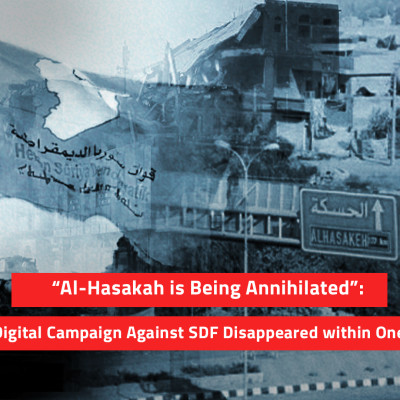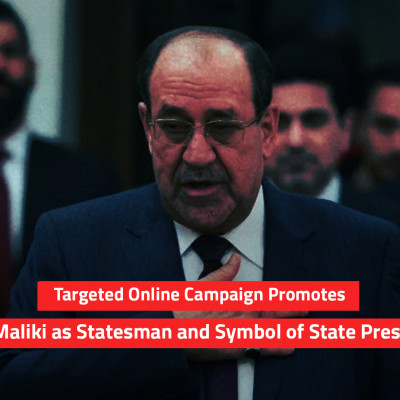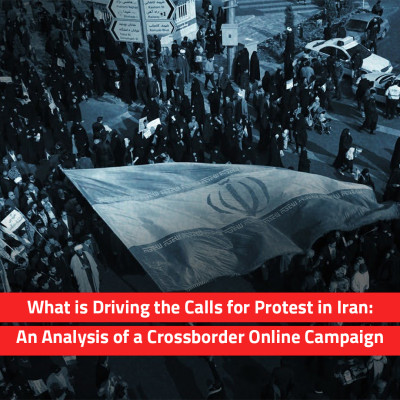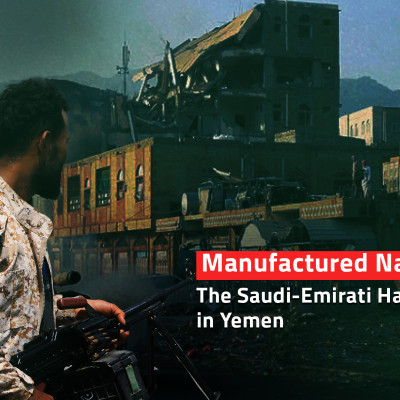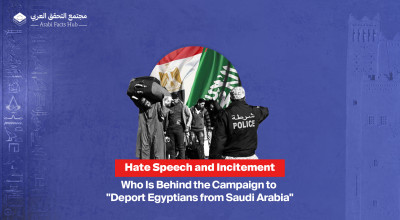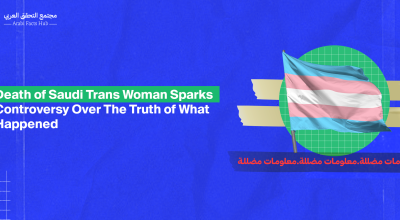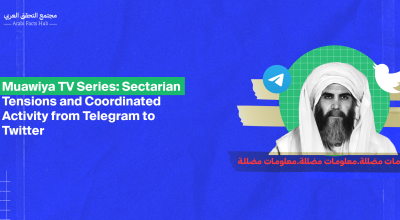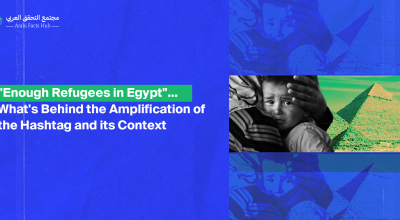“I am an Arab and I support Qatar” How Qatari, Yemeni, and Muslim Brotherhood Cyber Armies Confronted a German Minister
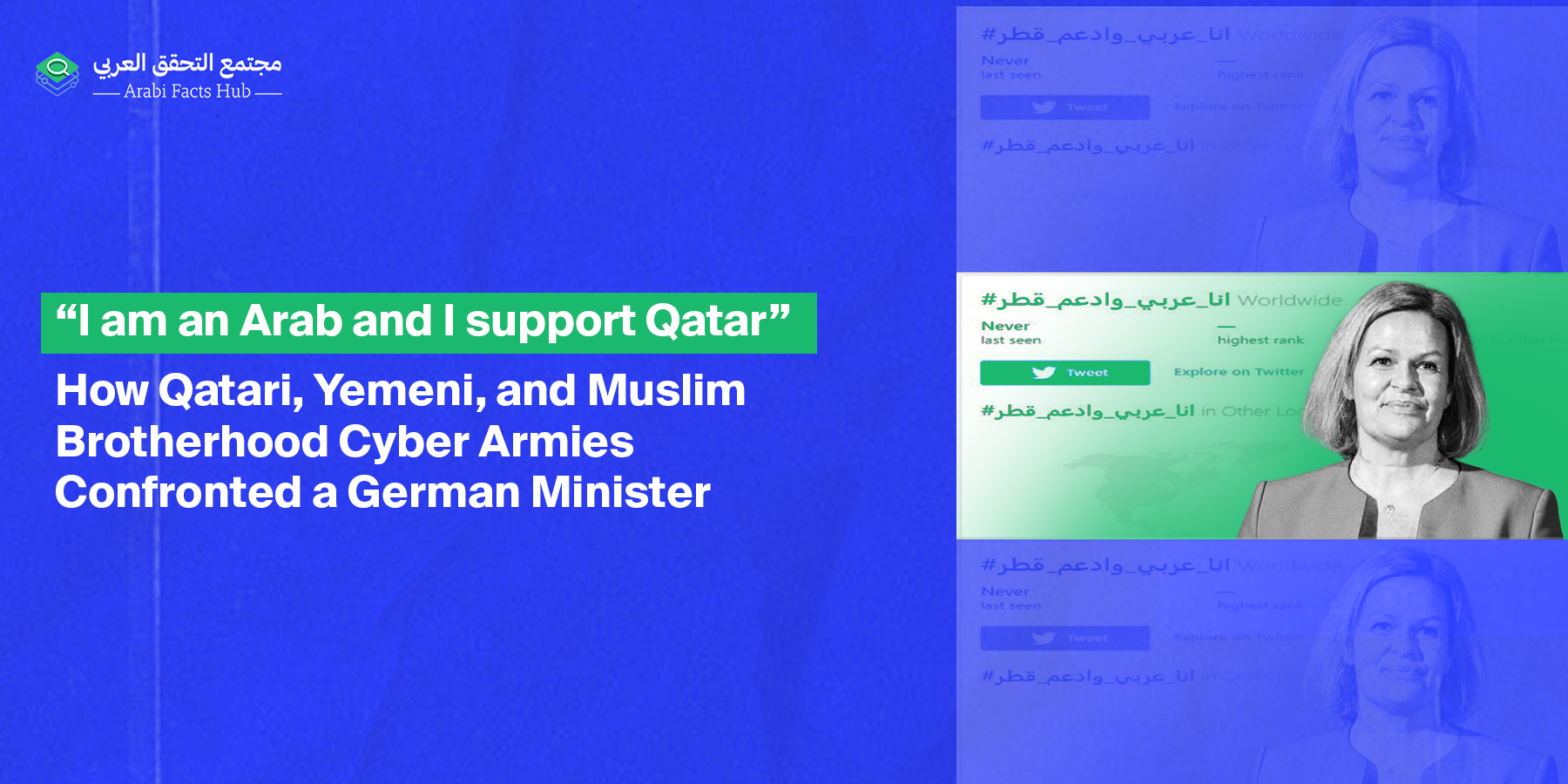
This is part of a series of investigative reports published in collaboration with Daraj media
Egyptian accounts actively tweeted using the Qatari hashtag. These accounts criticized the Egyptian president, contributing to a broader mobilization effort for protests against him during the month of November.
__________________________________________________________________________________
Arabi Facts Hub (AFH) is a specialized research project that utilizes software to support Arab fact-checking platforms. This includes establishing a unified technical standard database that aggregates content from fact-checking platforms electronically. This enables wide-ranging search and analysis tools. The project aims to integrate artificial intelligence and machine learning techniques into its framework. Additionally, the project provides services, such as the "Eye on Twitter" reports, utilizing technological tools to track and identify sources of misinformation campaigns and hashtags associated with misleading news on social media. "Daraj" publishes this report in partnership with AFH.
__________________________________________________________________________________
German Federal Minister of the Interior and Community, Nancy Faeser, delivered scathing criticism of Qatar in early November, highlighting concerns about its human rights record. The criticism centered on reports of poor working conditions for foreign laborers in preparation for the World Cup, as well as the country's stringent stance on LGBTQ+ rights and recurring political arrests.
Given her role overseeing sports in Germany, Faeser's remarks triggered reactions from Arab Twitter users. The hashtag #I_am_an_Arab_and_I_support_Qatar emerged as a rallying point for supporters of Islamic factions with close ties to Doha.
Many responses appeared spontaneous. However, there was also participation from Arab accounts which take part in various regional campaigns, such as mobilizing for protests in Egypt during November, advocating for unity in Yemen, and supporting the independence of the Hadhramaut region.
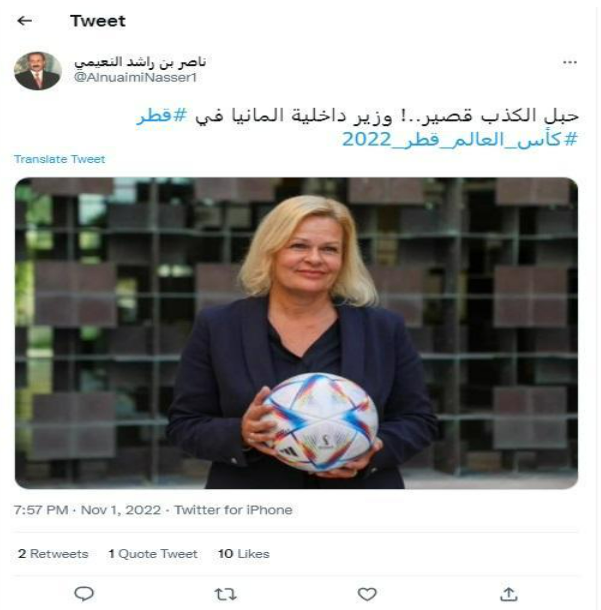
Activity on the hashtag was dominated by retweets, comprising at least 70% of the total 54,000 tweets. This suggested potential coordinated activity. At Arabi Facts Hub, we analyzed hashtag activity aiming to identify key participants. While some tweets were authentic expressions from real individuals, there were clear signs of coordinated efforts, often associated with the Islamist Political Party “Al Islah” (Reform) Reformist faction. Concurrently, Egyptian accounts participated in the Qatari hashtag using the same accounts and expressing criticism towards the Egyptian president.
What happened
In a television interview before her visit to Qatar, the German Minister criticized Qatar's organization of the 2022 World Cup, stating that the honor of hosting such an event should be linked to commitments, including human rights. She remarked, 'It would be better not to award hosting rights to such countries.'
In response, Qatar officially summoned the German ambassador and handed him a protest note. In reaction to this, a campaign was launched on October 28 by Qatari photographer Abdulaziz Bin Omar, titled #I_am_an_Arab_and_I_support_Qatar. He called on Arab Twitter users to participate in the campaign by using the hashtag.
Abdulaziz, who has over 100,000 followers, mainly focuses on tweeting about sports events. He has however commented on and participated in previous online campaigns, particularly during the Gulf crisis and the failed coup attempt in Turkey in 2016.
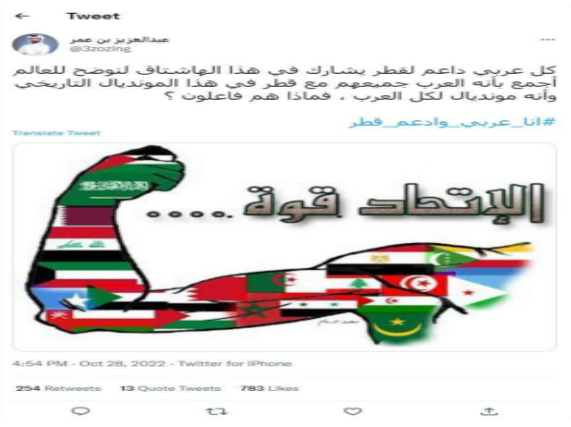
During the period from October 28 to November 3, the hashtag generated 15,125 tweets, 39,944 retweets, and 159,631 likes. At least 2,039 accounts participated in the campaign, including 2,008 accounts with connections on Twitter.
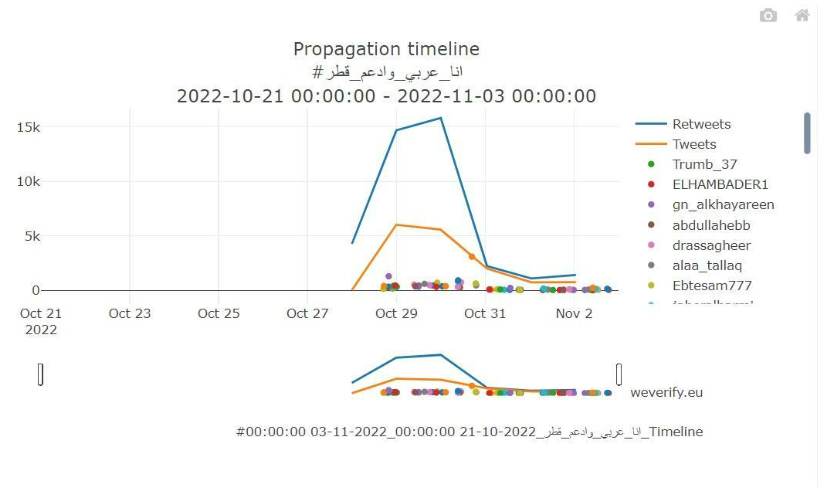
Screenshot of the interaction curve for the hashtag #I_am_an_Arab_and_I_Support_Qatar – SNA InVID
Yemeni mobilization and Egyptian tweets
As per the findings of the Get Trend Today tool, the majority of tweets emanated from accounts asserting their location to be in Qatar, Egypt, Jordan, Saudi Arabia, Oman, and Kuwait. The hashtag gained traction, featuring on the list of the most trending topics in some of these countries.
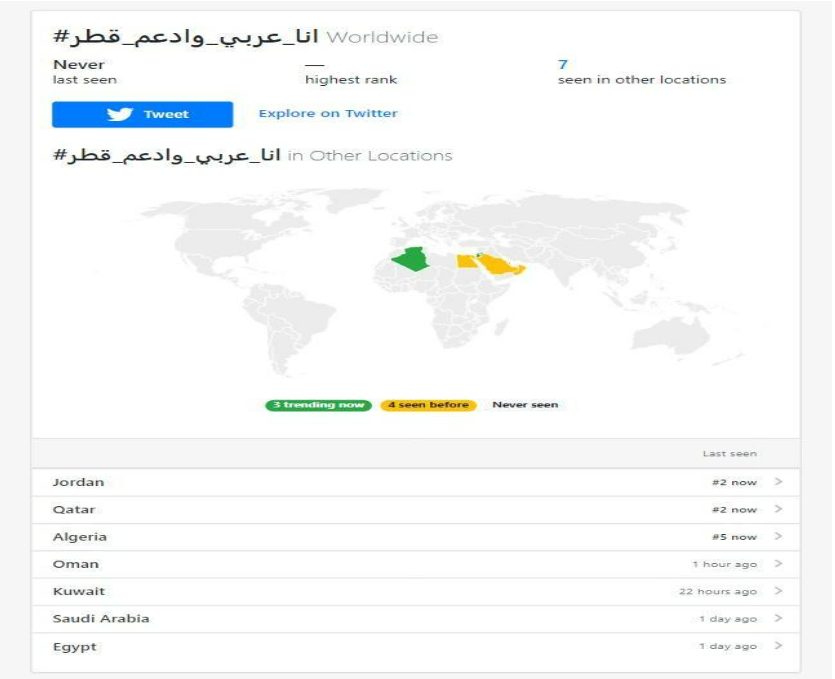
Screenshot depicting prominent countries engaging with the hashtag #I_am_an_Arab_and_I_Support_Qatar – Get Trend Today
Despite Yemen not being explicitly highlighted in the previous map, an additional analysis conducted through the SNA – InVID tool reveals that a considerable number of actively participating accounts on the hashtag were from Yemen.
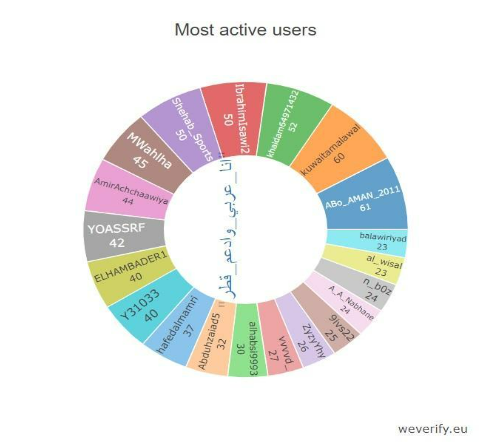
Screenshot of the most active accounts on #I_am_an_Arab_and_I_Support_Qatar – SNA InVID
Upon closer examination of content from Yemeni accounts, we noticed engagement with tweets aligned with Al Islahthe Reformist faction, associated with the Muslim Brotherhood ideology. The leaders of this faction are accustomed to appearing on Al Jazeera and typically hold friendly views towards Qatar, in contrast to their stance on the UAE, which supports the Southern Transitional Council in southern Yemen at the expense of Al Islah the Reformist faction.
These accounts have actively participated in various campaigns, especially in southern Yemen. The most recent of these campaigns was analyzed by Arabi Facts Hub on the sidelines of the military movements of the Southern Transitional Council in August-September 2022, as its forces spread across southern provinces, demanding the withdrawal of government forces and Al Islah the Reformist faction.
For instance, the account @ABo_AMAN_2011 was the most active on the hashtag with a total of 61 tweets. Since its creation in September 2019, it has posted 130,000 tweets, a relatively exceptionally high rate compared to the average.
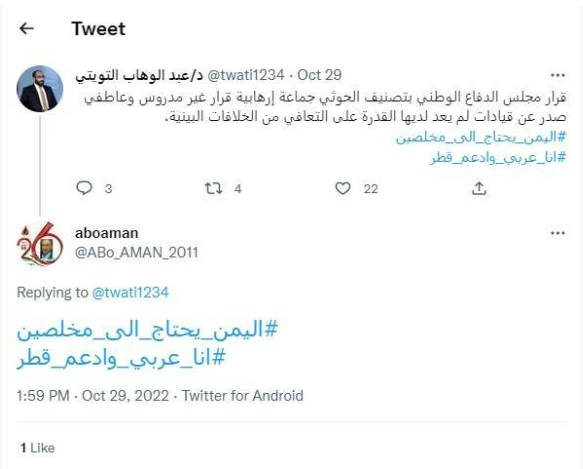
The previous tweet was in response to another tweet by Abdulwahab Al Twati, one of the prominent thinkers of Al Islahthe Reformist faction. Al Tawti expresses his rejection of the decision by the National Defense Council in the Yemeni Presidential Council – currently based in southern Yemen – to classify the Houthi group – which has controlled the northern provinces of Yemen and the capital Sana'a, since 2015 – as a terrorist organization.
The two accounts added the hashtags #I_am_an_Arab_and_I_Support_Qatar, and #Yemen_Needs_Faithful_People, which was promoted by Al Islah Reformist supporters since last August.
The owner of the @ABo_AMAN_2011 account appears to be from Taiz City (southeastern Yemen) as indicated by the account handle (@Sadiq_Taiz), which Twitter suspended last year, possibly due to excessive online activity.
He has another account under the name Abu Aman Al-Sadiq @AbouAmanAlSadeq, with over 3,000 followers. This account has posted more than 13,000 tweets since its creation in October 2020, also indicating a high tweet rate.
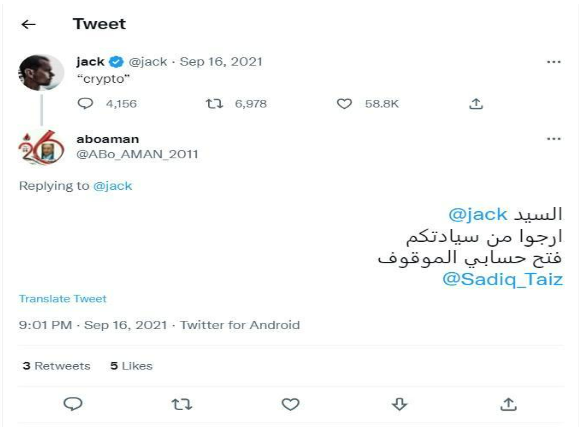
On examining the second account of Abu Aman, we observed that he also utilized it for tweeting using the Qatari hashtag, albeit not with the same intensity as his first account. We also noted his engagement in retweeting posts authored by the social media active Yemeni writer, Anis Mansour. Mansour is recognized for launching campaigns against the Emirati presence in Yemen, and is considered by proponents of the Southern Transitional Council to be a supporter of Al Islah the Reformist faction. Abu Aman's tweets positively about Qatar, and reports indicate he has a cyber army of fake accounts which he uses in his campaigns.
Mansour advocated for the initiation of a Yemeni hashtag to support Qatar, while Abu Aman was also one of the most active participants in the hashtag #I_Am_a_Yemeni_Supporting_Qatar, which accumulated over two thousand tweets.
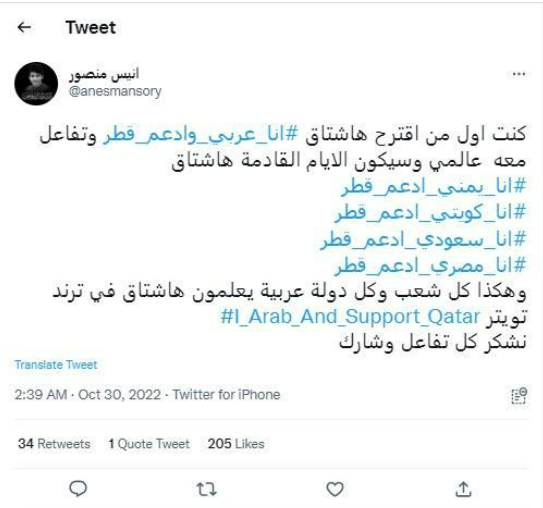
*We had previously delved into Anis Mansour’s role and activity during the recent military movements of the Southern Transitional Council.
In his call for participation in the Yemeni hashtag, Abu Aman urged the "Yemeni cyber army located inside and outside the country to actively contribute to the hashtag."
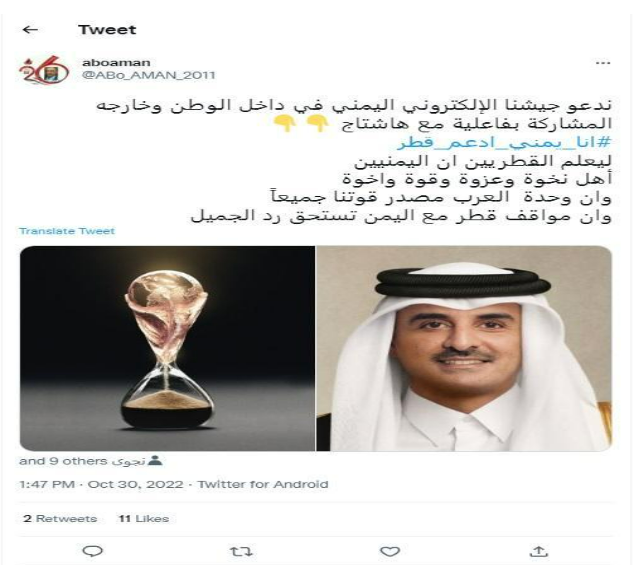
Egyptian accounts also participated in the Qatari hashtag. Some of these accounts were immersed in other electronic campaigns, such as the mobilization campaign for protests in Egypt in November, coinciding with the climate summit. Among the participating Egyptian accounts was that of Fatima Abu Zeid, who regularly tweeted hashtags commonly seen in the list of the most trending topics in Egypt, with a discourse that is critical of the Egyptian president.
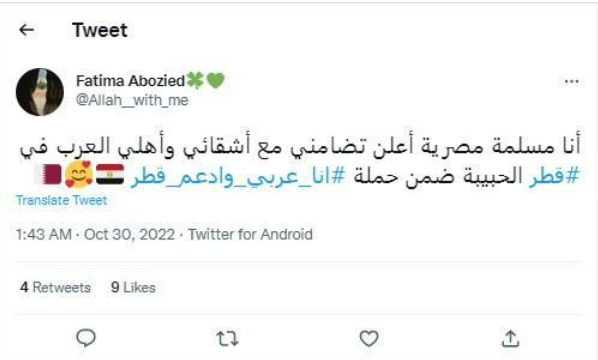
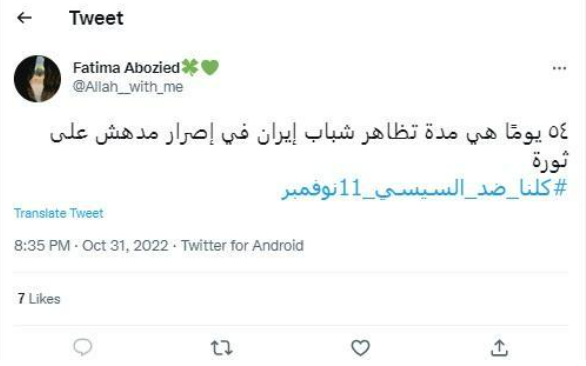
Similarly, other accounts tweeting from Egypt had interactions criticizing the Egyptian president.
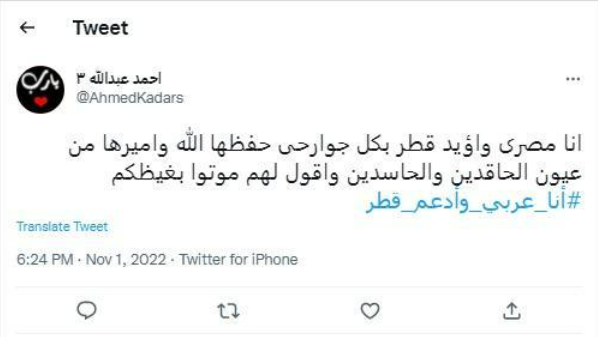
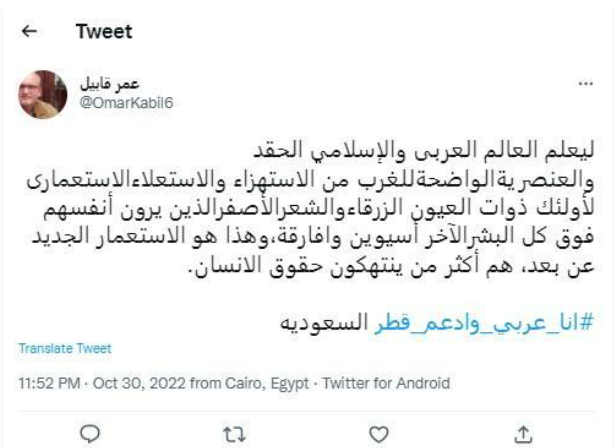
Cheap accounts and cheap Marketing
The campaign utilized "cheap promotion accounts," i.e., accounts used for various purposes, such as promoting commercial products, "elevating hashtag trends," increasing followers, and selling accounts.
In Gulf Twitter, these accounts typically appear in trending hashtags, with varying content and discussion topics. These hashtags are not always in relation to specific ideological content or political affiliation, as they are used to promote contradictory narratives depending on who pays for the service employing numerous fake accounts. Some of these accounts bear the names of public figures or celebrities, tweeting as if they were affiliated with these individuals. This leads to various crises due to the public's belief that these are genuine accounts. These accounts undergo name changes based on the circumstance or the prevailing popular personalities at a particular time.The owners of these accounts sometimes publish controversial or opposing tweets to attract more followers before offering them for sale to companies or institutions wishing to appear on Twitter with accounts that have a large following to gain the public’s trust. This practice is common, especially in Egypt.
We could not confirm whether these accounts were used as part of the Qatari hashtag campaign. However, the examples below show that they contributed to some extent to the hashtag reaching a larger number of Twitter users, with some tweets exceeding 300 and 600 retweets.
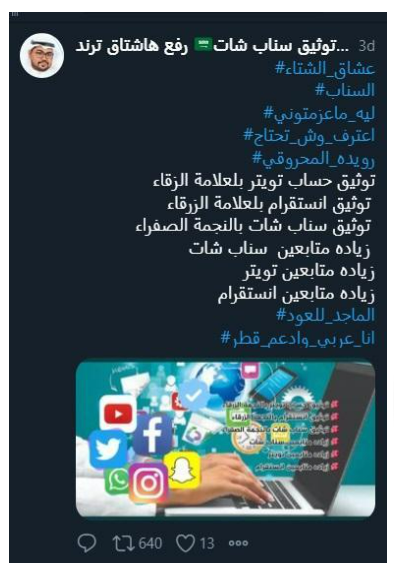
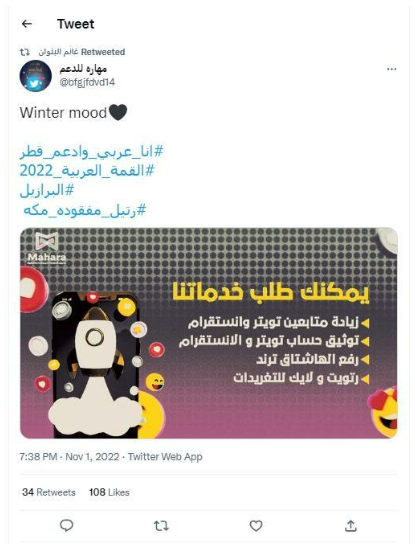
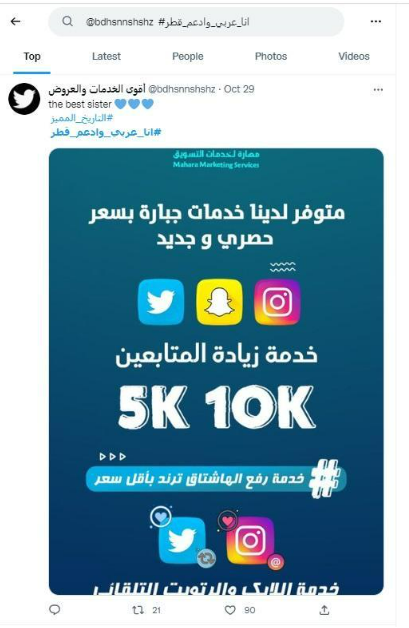
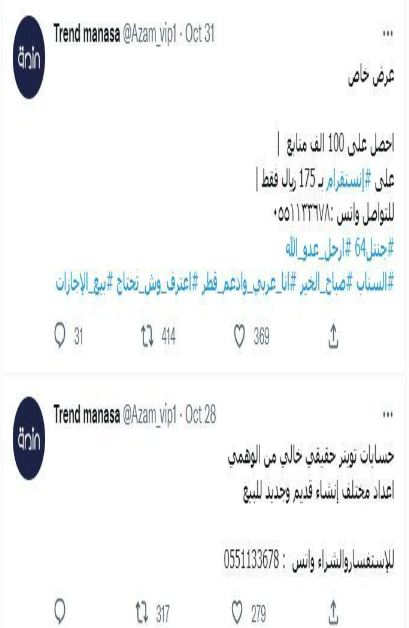

Qatari media outlets and high-follower accounts
The interaction movement curve published at the beginning of this analysis shows that the hashtag reached its peak on October 30 and 31, the same period during which major Qatari media accounts pointed to the hashtag as a tool for solidarity with Qatar. Millions of people follow these accounts, contributing significantly to the hashtag's spread and popularity in several countries.
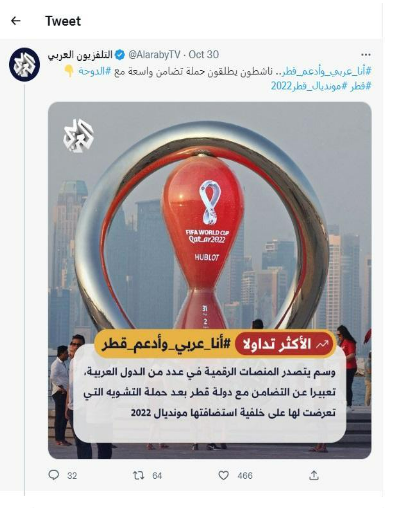
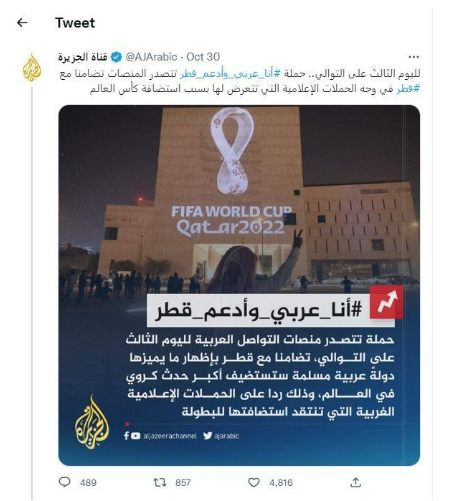
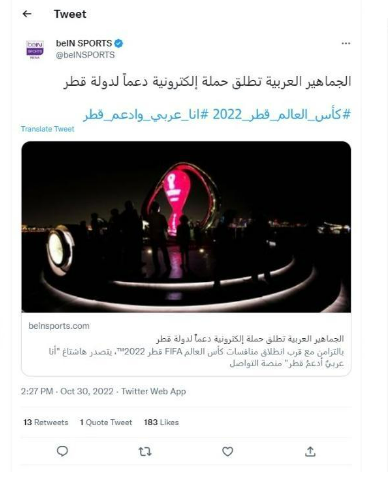
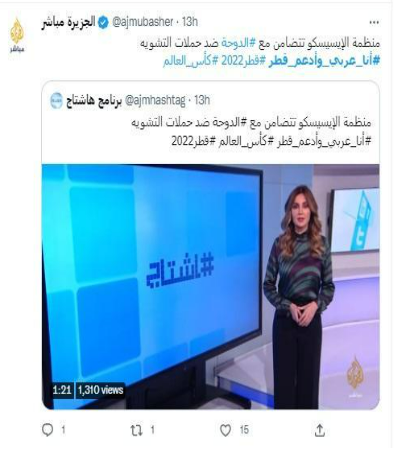
Several celebrities and influencers from various Arab countries actively engaged in this social media campaign, hailing from Jordan, Algeria, Oman, Egypt, and Gaza. These individuals boast substantial followings, numbering from tens to hundreds of thousands, if not more.



*While conducting our analysis, Twitter temporarily suspended some accounts, including @ge6arr, due to "unusual activity" in relation to content on this account. The account posted dozens of tweets, intensifying its activity through retweets. Since its creation on November 1 and until November 3, it had published about 200 tweets, all revolving around Qatar.
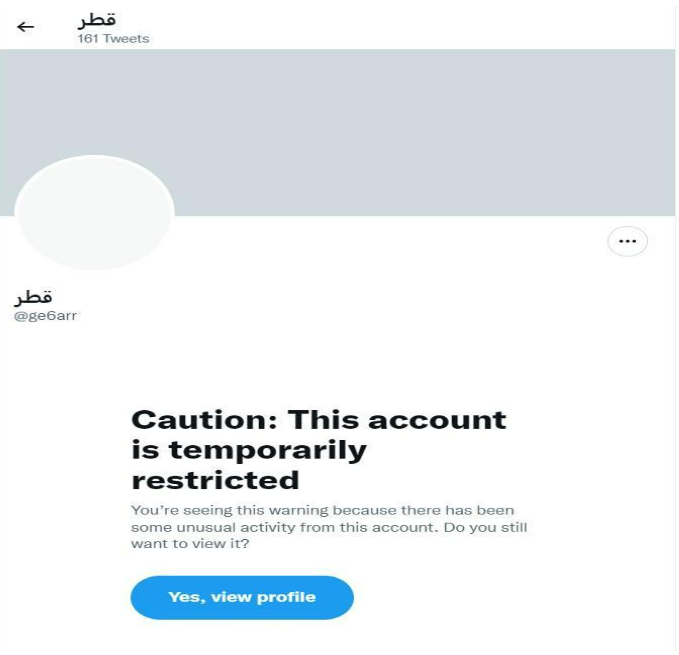
In summary:
- Although some of the content tweeted on the hashtag was spontaneous from real individuals, coordinated activity contributed to the spread of the hashtag.
- A significant portion of prominent accounts active on the hashtag are linked to Al Islahthe Reformist faction in Yemen and have participated in previous online campaigns. One account alone published 62 tweets.
- Twitter temporarily suspended some accounts due to "abnormal activity" because of the nature of what they publish.
- There were Egyptian accounts tweeting on the Qatari hashtag. These accounts also directed criticism against the Egyptian president. These accounts were part of the mobilization campaign for protests against the Egyptian president in November.
- Accounts with very low numbers of followers were part of the tweeting campaign. In contrast, celebrity accounts and media outlets with millions of followers participated in amplifying the hashtag.
- Retweets dominated the interaction movement across the hashtag, and a large percentage of participating accounts had strong connections through social networks.
Tools Used:
InVID Verification Plugin
Twitter Search
Tweetdeck
Get Day Trend
Gephi
Social Searcher
Netlytic
Twitonomy
